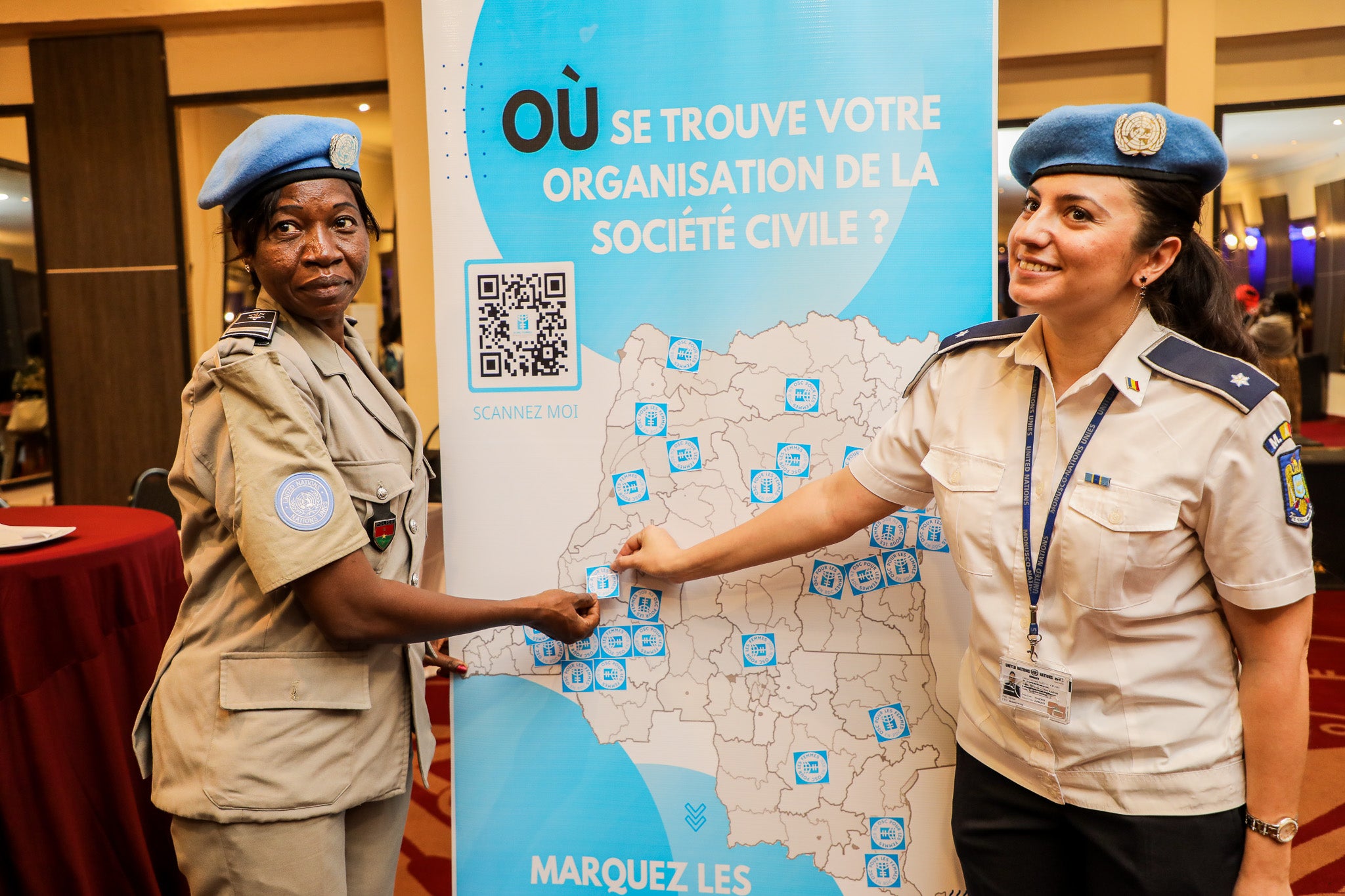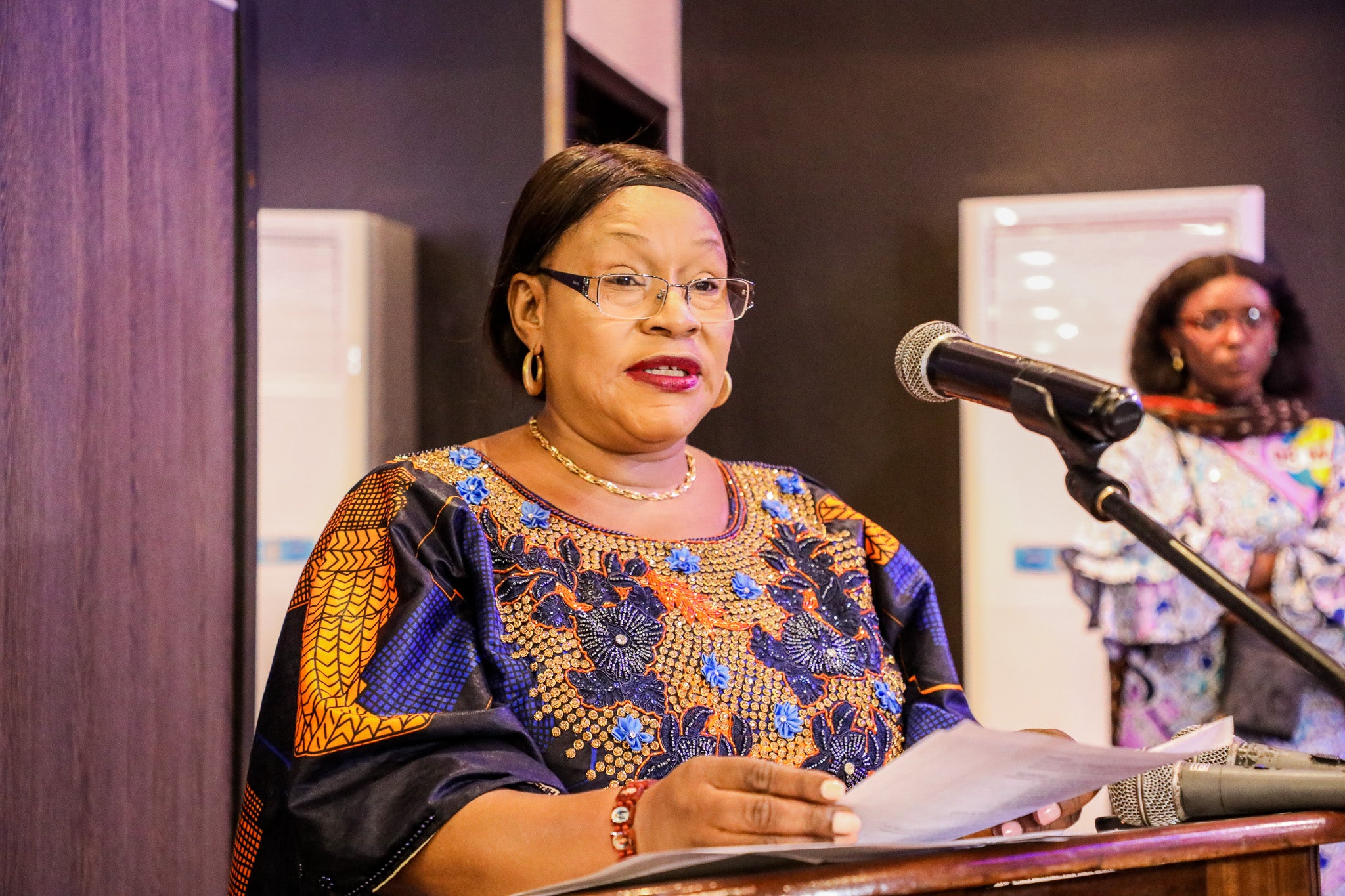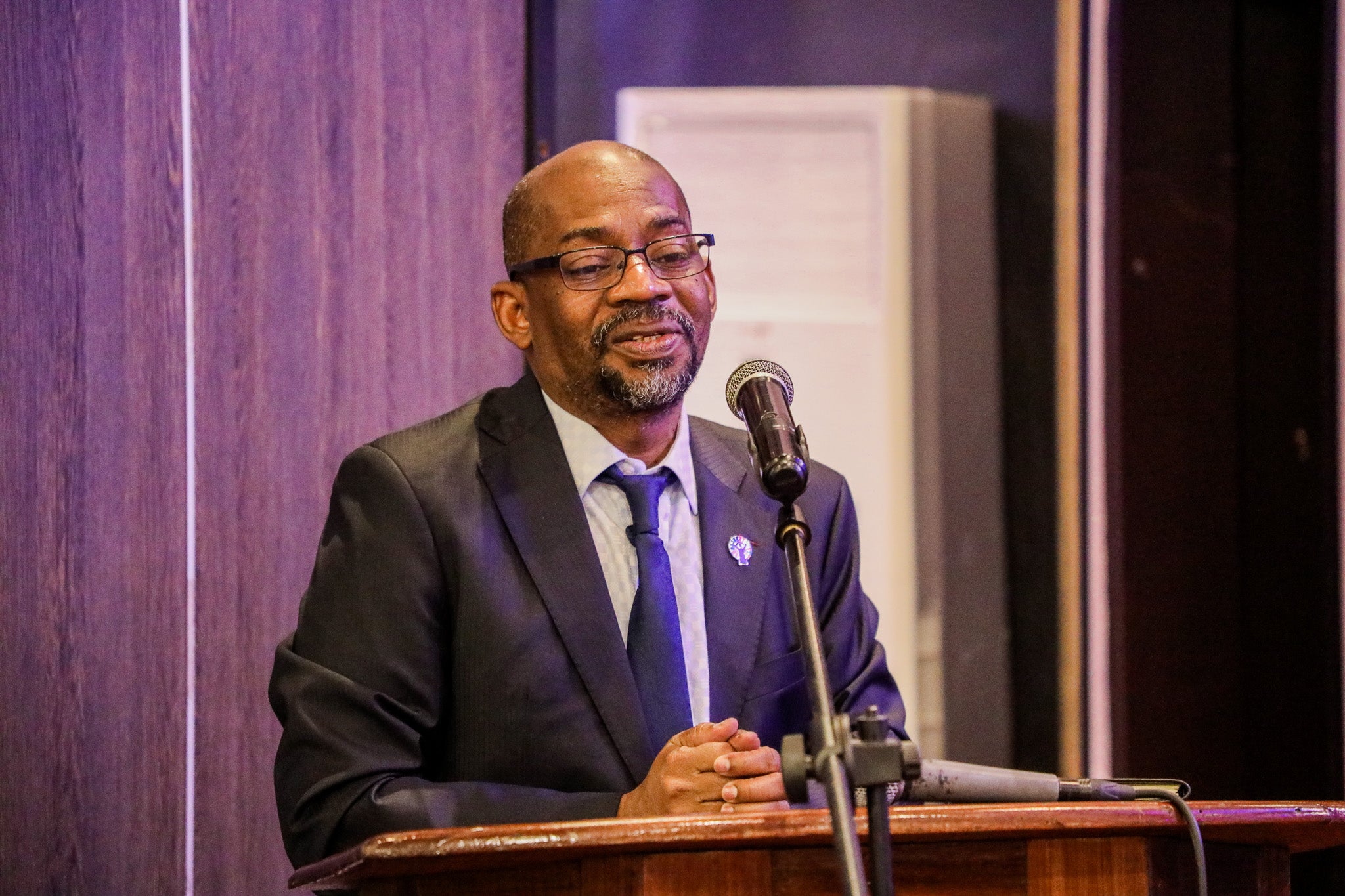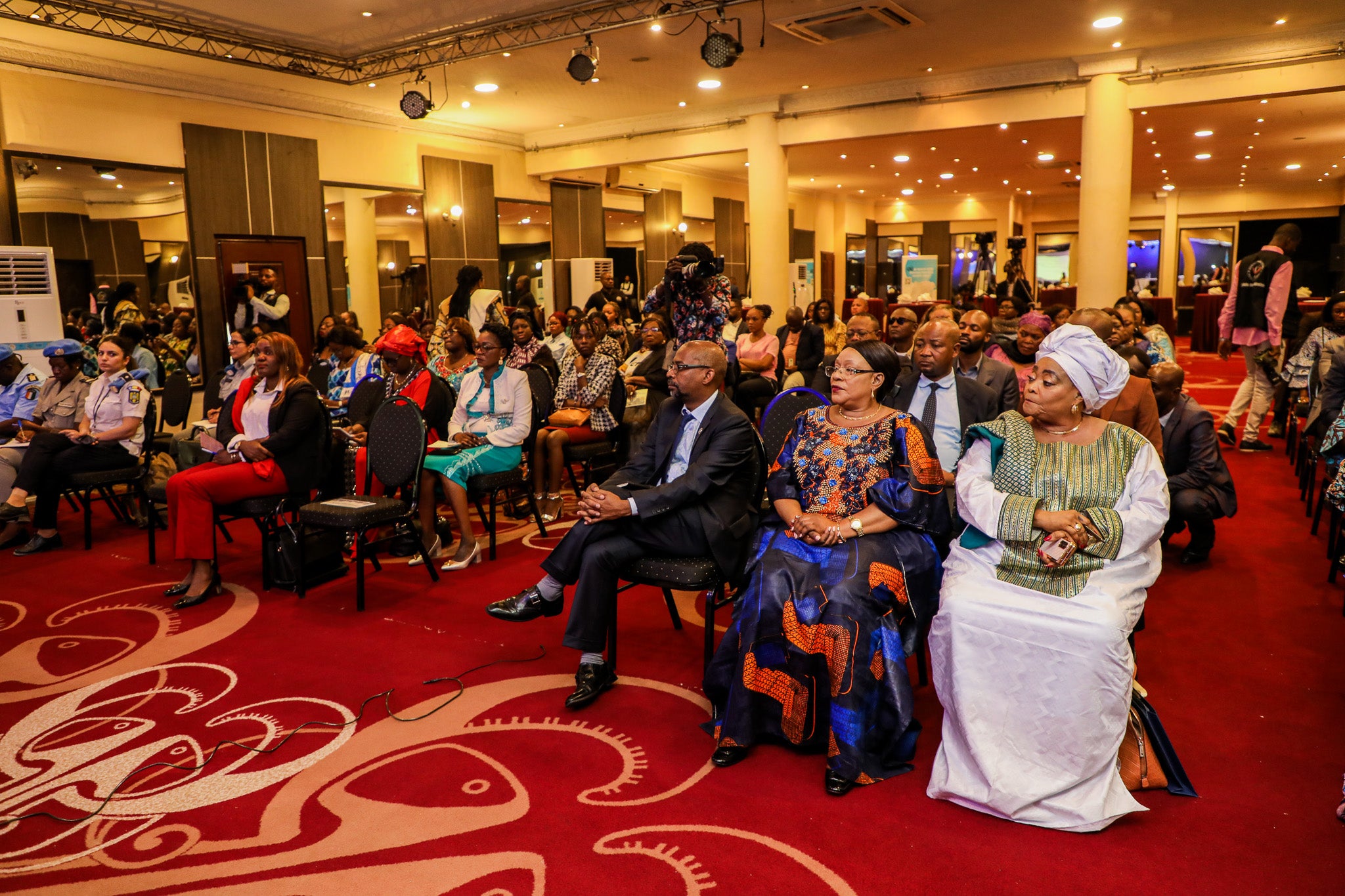DRC: Bringing women’s civil society organisations together
A pioneering initiative that will create a synergy of women’s civil society organizations (SCOs) is arriving to the DRC. July the 5th 2023, Her Excellency Mrs. Mireille Masangu Bibi Muloko, Minister of Gender, Family and Children in the Democratic Republic of Congo, launched in Kinshasa the Mapping of the Women's Movement in the DRC, an initiative led by the Ministry of Gender, Family and Children, UN Women and the African Women Leaders' Network (AWLN), with the financial support of Sweden. This project will establish a reliable and dynamic database which will be used for the dissemination of information in real time and will promote networking and a functional synergy of the women's movement in the DRC. Until August the 5th 2023, all women’s organizations in the DRC are invited to sign up to this mapping, using a link shared on our social media and via QR codes at all UN Women DRC events.
Date:

Women's civil society organizations play a vital role in advancing the gender equality agenda in the DRC. While women make up 51% of the Congolese population, economic and social barriers continue to prevent many women from enjoying security, economic prosperity or representation in decision-making spheres. Statistically, up to 52% of women in the DRC are survivors of domestic violence and 39% of Congolese women report having been threatened or harmed. 27% of women in the DRC are victims of harmful traditional practices and early marriage is common. Very few Congolese women have access to decent jobs and, in general, women and girls have less access to education than men and boys, as well as higher illiteracy rates.
Hence, civil society organizations (CSOs) are key players in bridging the inequality gap in the DRC, as is guaranteeing the mutual encouragement between women and girls. “Develop more solidarity so that we can transform. May those who are elevated in dignity serve as a bridge for those who come after. There is no success without a successor,” said Ms. Marie-Louise Mwange, National Coordinator of African Women Leaders’ Network (AWLN) DRC at the launch. Women's CSOs act as links between institutions and communities and provide women and girls with the knowledge, tools and support to feel empowered and realize their full potential.

The Mapping of the women's movement in the DRC in the 145 Territories of the 26 provinces “will ensure a better understanding of the women's associative movement in the DRC for a greater synergy of women's CSOs, with a view to improving networking, information sharing, development institutional and organizational strengthening” defined Mr. Adama Moussa, Resident Representative of UN Women DRC. More specifically, it will achieve this result through the following points: (i) Having a reliable and dynamic database of the women's movement in the 26 provinces; (ii) Serve as a platform for the dissemination of information to women's organizations; (iii) Facilitate the establishment of functional synergy; (iv) Enable the implementation of the network capacity building plan; (v) Professionalization to leave the holistic culture; (vi) Serve as an indicator for the selection of organizations that will participate in the National Forum. A pilot mapping project was carried out in the cities of Kinshasa and Goma by the organization Ensemble Construisons Humanisons Organisons notre Société, ECHO in acronym, with a grant from UN Women in the area of political participation and leadership, as well as humanitarian.

Mapping work will take into account existing initiatives; it is cross-cutting and comes in support of all CSO teams to serve as support and together enhance knowledge of women's movements in the DRC. The final product will be presented in 3 forms: (i) A dynamic geographic, programmatic database in electronic form; (ii) A printable document oriented around UN Women priorities and which can be used as an advocacy tool; (iii) A document providing information on the commitments made by CSOs with the various technical and financial partners and which can be used to coordinate development aid in the DRC. At the end of the launch ceremony, the 100 participants from ministries, female SCO, UN agencies and public authorities had the chance to place stickers on a DRC map, to show where their respective women’s projects intervene. This resulted in a visual estimate of what the cartography will look like at the end of the data collection.
Her Excellency Mrs. Mireille Masangu Bibi Muloko, Minister of Gender, Family and Children officially launched the signing up to the mapping by expressing the Government's utmost support to the initiative: “I welcome the completion of this activity which will enable the Government of the Republic to have a reliable directory of associations and networks of partner women in the field of women's economic empowerment for coordinated actions at the global, regional, national and provincial levels... I would like to assure you of my support and I invite all organizations to register massively”.

Pour vous inscrire à la cartographie, veuillez utiliser ce lien : https://forms.office.com/r/SjcEJQaJ7p